Getting to the Book
Hi Everyone,

Over the past few years, I have mentioned several times about my intentions to write a book. So far, my progress has been inconsistent and uncommitted. In 2017, I intended to write a book about economics and veganism. I had a lot of energy and enthusiasm. I was learning many new things. I was thinking about the world in a very different way. I had only adopted the vegan lifestyle midway through 2016. I felt a rush to explore and express everything I was adsorbing. However, pulling everything together was significantly more challenging than I expected.
Therefore, I changed my plans. I decided to write a book about freedom and economics (freedom-based economics). The veganism aspect would be a part of that book. My content would rely very heavily on my Hive published posts. However, my plans changed again. I became distracted with other things and I decided I wanted the book to be more than just a compilation of Hive posts.
I decided to keep with idea of freedom-based economics but to use the themes I have used in my posts rather than the actual posts. I believe this to be a more professional approach and I think it will read better as I will be targeting a defined theme from the beginning. The Hive posts can provide additional reading material for some of the themes I discuss.
In this post, I want to discuss the evolution of my thought process as well as reveal some of the themes and content I intend to express in the book.
Started with Vegan Economics
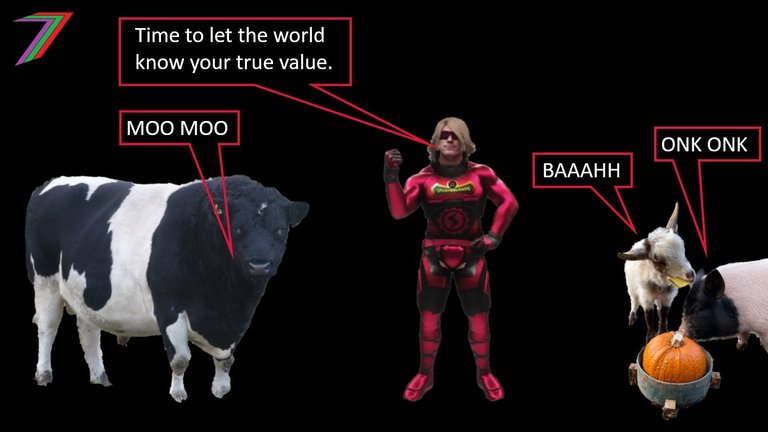
I started by making videos and posts that connected veganism with economics. My focus was on value of life. Many studies have been conducted in an attempt to place value on human life. These studies have attempted to quantify and, in many cases, monetise the value of human life. A value for human life was deemed necessary for inclusion in assessments or analyses of initiatives that have an impact on the risk for loss of life. For example, adding safety features to a road that would reduce severity of crashes and hence reduce the chances of fatal vehicle crashes.
Since, human life could be valued to a degree of recognised accuracy. I believed something similar could be done with other species of animals. The main reason I wanted to derive values of life for different species of animals was to demonstrate the cost of killing and exploiting animals as a process of meeting human needs and wants. Typically, non-human animals are treated as property. Therefore, their value is assessed based on human market forces and regulation. Their lives should not be valued based on the perceived value they offer to humans. Their lives should be valued based on the value they offer to themselves/species and/or to their/our environment.
Unlike humans, other species of animals cannot articulate complex opinions, answer questions, or make observed decisions using a medium of exchange. Therefore, I believed the most appropriate approach to assessing the value of life of another species of animal would be to use humans as a benchmark. I needed to identify the key factors that would differ the value of life between different species of animals. I also needed to find a method of comparing these factors.
The first factor I considered was intelligence. I believed that intelligence adds value to life. It adds value to the individual animal as well as its species in general. The best example of this is humans. Human advancement is mostly because of human intelligence.
The next factor I considered was natural life expectancy. A species should have a value of life proportionate to its life expectancy. For example, if there are two animals with the same intelligence, the animal with more expected years of life remaining should have a higher value of life.
I was happy with my initial progress, as I was able to compare different species based on intelligence using the Encephalization Quotient and data on the life expectancy of different species of animals was readily available. However, my progress beyond this was limited. Ideally, I needed to compare how different species integrated among themselves. Not all contributions are enhanced by intelligence. Instincts, emotions, physical traits, and other intangible elements affect how animals interact with each other and their environment. However, these appear impossible to compare; therefore, impossible to include in any assessment on the value of life. This limited how I could improve my initially described approach.
Several years later, I discussed a possible ecosystem approach. This approach considers life from a much broader perspective. This approach proposes that life should be valued based on its contribution to maintaining or restoring balance (equilibrium) to an ecosystem. Value of life would not be absolute but relative to the other species in the ecosystem. For example, if an ecosystem, which is currently in balance, becomes unsustainable with the loss of 10 predators, ceteris paribus, or with an increase in 100 herbivores, ceteris paribus, the predators should be considered as 10 times more valuable to the ecosystem as the herbivores.
For an ecosystem that is not in equilibrium (i.e. may have too many or too few of a particular species) the relative value of each species will change depending on whether that species is bringing the ecosystem closer or further away from equilibrium. For example, it may have too few predators, which has resulted in an over population of herbivores, which causes the number of plants to deplete too quickly for this ecosystem to be sustainable in the long-run. Therefore, we would consider predators relatively more valuable than they would be if the ecosystem were in equilibrium as there is a shortage of them. Opposite would be true if there were too many predators.
The next step involves considering how humans fit into their own ecosystem as well as how they have affected other ecosystems. Humans are very different from other animals as they attempt to control the entire ecosystem themselves rather than rely on nature to take its course. They hold animals in captivity for reasons such as food, entertainment, testing and research, pets, and breeding for pets. The sustainability of these artificial ecosystems depends on human intervention. This intervention often negatively affects other ecosystems that get in the path of the human developed ecosystems.
I have used my knowledge of economics to construct two approaches to valuing the life of other species of animals. I believe both these approaches have merit and can be used together to create some understanding of the value of life of different species of animals. I believe these approaches can be used to help assess the real cost of human intervention in regards to other species. However, I do not believe I would have sufficient content to write a book purely focused on these two approaches and their implications.
I would have sufficient content if I included broader economic impacts of human intervention in animal ecosystems. I have chosen not to go with this approach, as this content would not be new nor would it be an important contribution to the literature. The book ‘MEATONOMICS’ covers the broader costs and psychology behind these costs with clarity. Therefore, I believe a better approach for my content would be to include it as a section in a book that covers a broader subject matter but has a consistent theme.
If you want to read more about my two approaches to valuing life, I recommend that you read the four post below.
Cruelty-free Economics - Valuing Life (Third Revision) (Part 1)
Valuing Life (Part 2) - Valuing Human Life
Valuing Life (Part 3) – Valuing the life of an animal
Valuing Life (Part 4) – Valuing life as part of an ecosystem
Freedom-based Economics (compilation of posts)
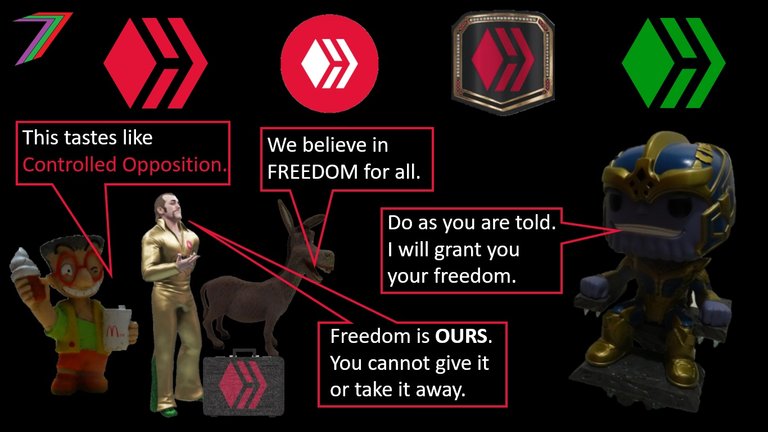
I strongly believe that freedom is the most fundamental and important right. I believe freedom enables us to have the opportunity to have the best possible life. It enables us to make decisions on how we want to live our lives based on our perceptions of what we want. However, freedom cannot be universally guaranteed. When people exercise their freedom, they could be impinging on the freedom of others. Therefore, we could argue there is a need to restrict some freedom to preserve overall freedom. This creates the problems of the extent of these restrictions as well as who governs them. It is often the case that these restrictions are too strict and they are governed by a central authority. This lead to less freedom for the majority as the ruling minority, typically, use their freedom to gain more power and wealth.
My next idea for a book was to compile several posts linked to my ideas about freedom. This book would include several of my posts discussing value of life as well as a few others areas linking economics to animal welfare/freedom. These topics would make up less than a quarter of the book. The remaining three quarters of the book would focus on other areas. These areas would include the following.
- Existing types of “democracy” around the world.
- Scarcity or lack of it.
- Capitalism and prevailing market structures.
- Application of Game Theory.
- International trade and relations.
- Progress and Technology.
- Impact of the Covid-19 nightmare.
- The application of Cost Benefit Analysis to real world decisions.
- Freedom Philosophy
- Connections between various different areas
- My own perspectives as an Aspy (Asperger’s) economist.
The content for these areas would be pulled directly from my existing Hive posts. Some of the older content would be updated with new relevant information. Overall, most of the content for the book would exist on Hive. The book would be merely reorganising the content from the relevant posts so that they would mesh to explain a logical connection between various ideas. I decided to publish as an eBook. This would be easy to do and reasonably inexpensive. My sister published an EBook and had no problem doing so.
At the end of 2020, I decided which posts to include in the book as well as what content was missing. I finished parts 3 and 4 of the valuing life series. I wrote about my teaching and learning philosophy. I even wrote a post about my theories around gods, aliens, and trolls. I did not write about my journey as an Aspy Economist but I will at some point this year.
At the start of 2021, I had full intention of completing the book before the end of the year. However, I was side-tracked with other events in my life and I was having second thoughts about how I should pull my content together.
The world was still in the grips of Covid-19 restrictions and the narrative behind it was becoming less credible. I felt the need to continue diverting my attention towards topics relating to Covid-19 as well as the Great Reset. I was kept busy in the second half of the year with house moving. As well as working on the new house (e.g. building sheds and sun houses). Writing a book seemed like less of a priority. I was also having second thoughts about where to publish as an EBook. Amazon was my initial choice, as it would enable my book to reach a broad audience. However, my content is likely to be seen as controversial considering it runs strongly against Governments existing narratives; this became obvious during the Covid-19 madness from the past two years. I also felt I could do more than just replicate my existing content. The book could standalone even though most of the ideas supporting it would already exist in my Hive posts.
What is my plan now?
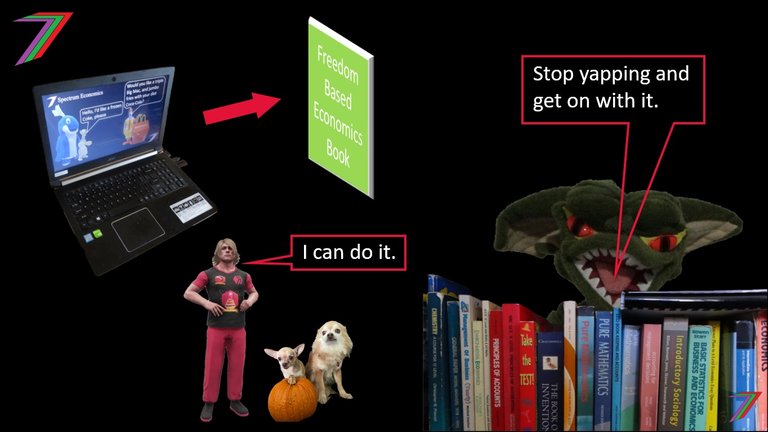
My plan is to start writing. I have started writing the outlines for the various themes and sections of the book. Once they are complete, I will begin writing the various sub-sections and chapters. I plan to leave the introduction and conclusion to last. This is because I am allowing my ideas to expand or change as I write. I do not want to be constrained by the introduction or need to rewrite it several times. I adopted this approach when I wrote my Master’s thesis in 2007. I find a skeleton outline of contents to be more useful. I aim to complete around four draft chapters a month. This should put me in a good position to complete the book by the end of the year and give me time for editing.
In regards to Hive, I plan to include some of the book’s content in posts. It is likely to be condensed versions, just parts of chapters or possibly section introductions. These posts are likely to be shorter than my usual posts. They will contain links to earlier posts that discuss similar themes. I will continue to post other content not related to the book such as my monthly contests as well as on other economic or political topics. I will bring back the 7-week challenge series but I will hold it later in the year, possibly early in the fourth quarter.
More posts
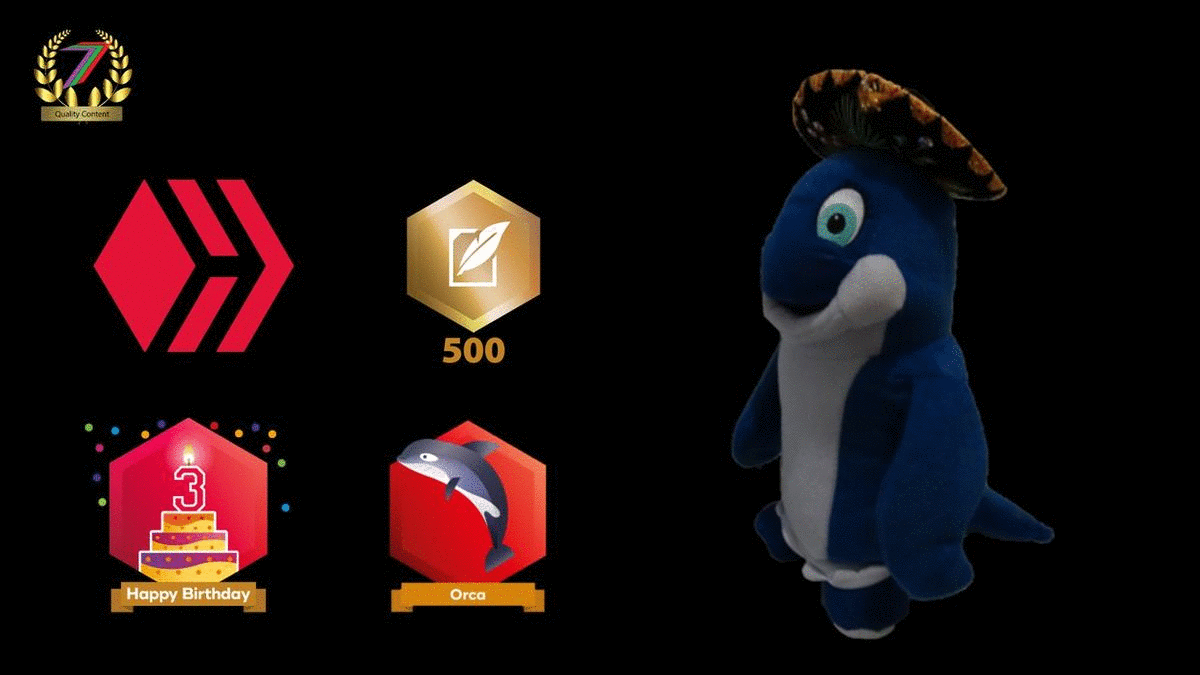
If you want to read any of my other posts, you can click on the links below. These links will lead you to posts containing my collection of works. These 'Collection of Works' posts have been updated to contain links to the Hive versions of my posts.
My CBA Udemy Course
The course contains over 10 hours of video, over 60 downloadable resources, over 40 multiple-choice questions, 2 sample case studies, 1 practice CBA, life time access and a certificate on completion. The course is priced at the Tier 1 price of £20. I believe it is frequently available at half-price.
Future of Social Media
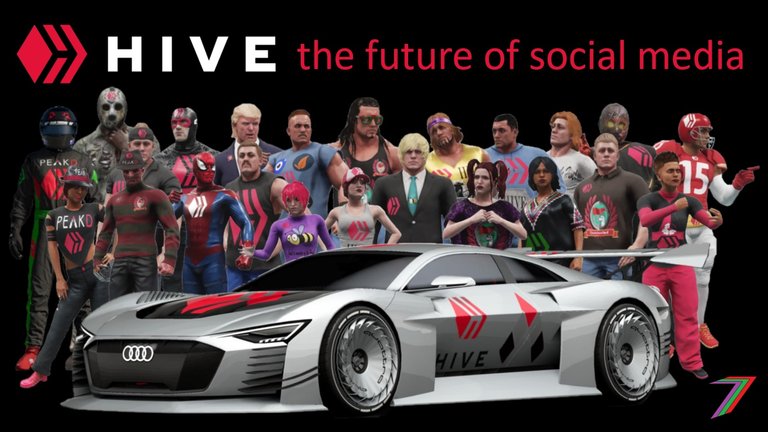





This post has been manually curated by @steemflow from Indiaunited community. Join us on our Discord Server.
Do you know that you can earn a passive income by delegating to @indiaunited. We share 100 % of the curation rewards with the delegators.
Here are some handy links for delegations: 100HP, 250HP, 500HP, 1000HP.
Read our latest announcement post to get more information.
Please contribute to the community by upvoting this comment and posts made by @indiaunited.
There's nothing as good as having freedom which derives one's happiness by not been choked by the stressful part of life. Freedom is what everyone wish for in every part of the world to live happily.
I see freedom as the gateway to opportunity. What we do with that opportunity is up to us.
Freedom is a broad topic especially when we look at it from a broader perspective. I couldn't help but paint scenarios in my mind when you talked about restricting some freedom to preserve overall freedom. Overtime we come to see that absolute freedom might result to lawless and lack of cordination. Even people who are meant to curb freedom to a particular extent are themselves abusers of the freedom thats been given to them, through elective representation.
Needless to say, freedom is an aspect of human life that will continue to remain a controversy especially in the aspect of human lives and animal. Overall, I know you've been talking about your book for a long time and it feels you're ready to publish since the contents are ready, I remember moving to a new house was one of your last year priorities if I'm not wrong?
As for the choice of Amazon, its great, dependable and tested, I don't know if you writing about government and Covid might be a hinderance.
@tipu curate
Upvoted 👌 (Mana: 50/70) Liquid rewards.
I normally mention writing a book at the beginning or the end of year. I've had full intention of doing it but I get distracted too easily sometimes. In some ways, the delays have been good as I have managed to refine the content I am going to use. However, I must make 2022 the year I get it done.
Hahah, hopefully you can finally get it done. It that's a lot of Mental strength to actually write a publication as there are a lot of hurdles, you'll. You'll probably publish the stages of the book, and I'll be looking forward to what you'll title it.
Are you thinking/speaking more towards monetary evaluation of life forms, or perhaps merely a point system of sorts?
Both. For monetary values a range is probably more useful as a precise value would be too arbitrary considering all the factors that cannot be included. I am leaning more towards a relative system of comparison between species. For example, the value of life of a chicken compared to a cow (i.e. like a ratio). I would also consider the circumstances when this ratio would change.